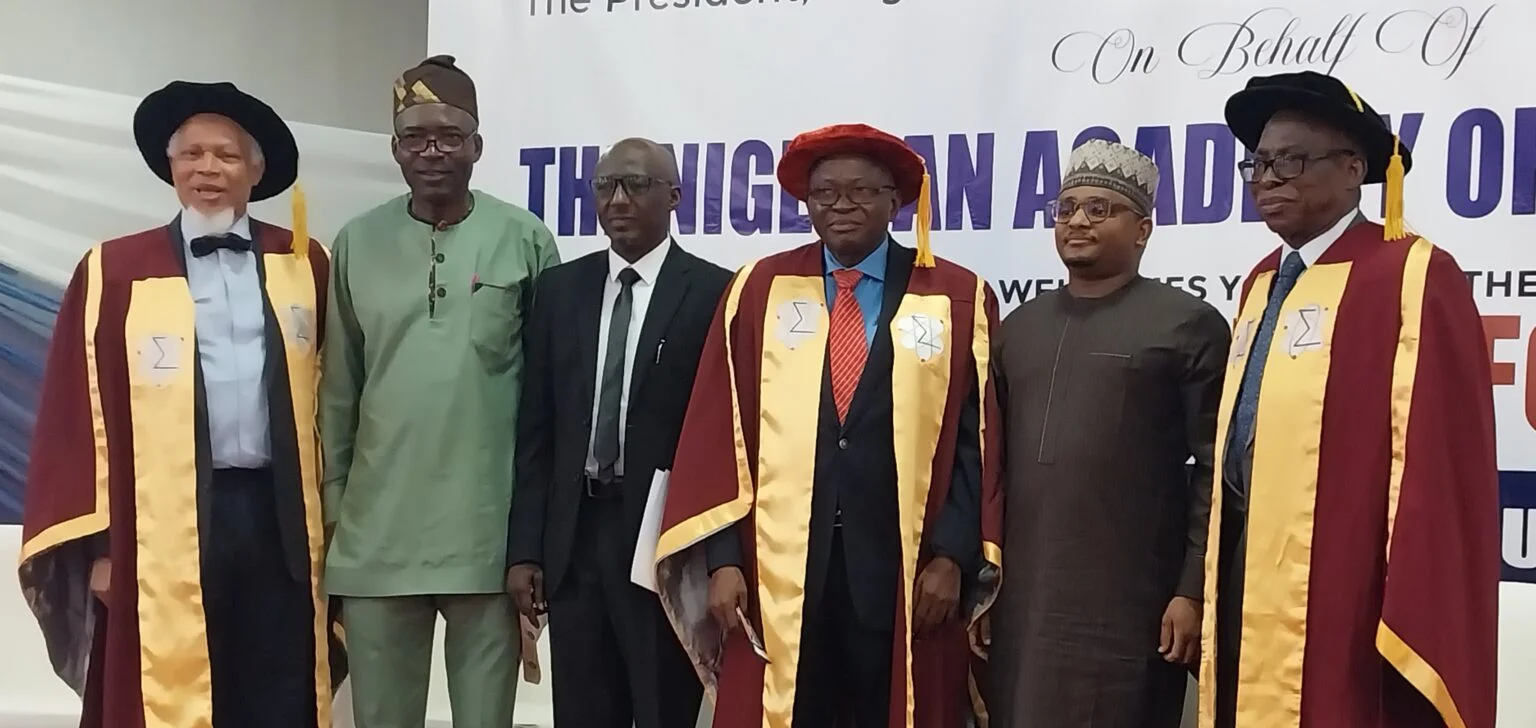NAEng 2024 Forum: Shettima calls for revamping of engineering education
By Angela Atabo
Vice President Kashim Shettima says revamping engineering education is crucial to national development.
The Vice President stated this on Tuesday in Abuja at the Nigerian Academy of Engineering (NAEng) 2024 Public Forum, with the theme: “Engineering Education’’, in Abuja.
Shettima, represented by Dr Sadiq Wanka, his Special Adviser on Power Infrastructure, said empirical evidence had demonstrated the strong interlink between engineering capacity and economic development.
“In Nigeria today, we find ourselves in a global economy, underpinned by digital technologies, and in a world, faced with the reality of climate change.
“We also find ourselves facing rapid urbanisation in the country, as estimates suggest that by 2050, 70 per cent of the Nigerian population would be living in cities.
“Given the nature and scale of the challenges ahead, the strength of our engineering capacity is inextricably linked to our economic and social progress,” he said.
Shettima however, said the good news was that Nigeria is immensely blessed with a young population and resources, among others, to drive the process, in line with President Bola Tinubu’s agenda.
He said it was therefore critical for the government to continue to work with professional bodies like NAEng, to ensure that the quantity and quality of engineers meet the moment and match national needs.
He also called for the need to promote inclusivity, by ensuring the advancement of women in the engineering profession.
The Vice President said, doing so would address historical and cultural biases that had limited girls and women from choosing engineering courses.
The President of NAEng, Prof. Azikiwe Onwualu said, if Nigeria gets engineering and technology right, all other sectors will be taken care of.
Onwualu said the successful development of the various sectors depended on the availability of engineering and technological ideas, tools, processes, facilities, equipment, and skills, required to build facilities, machinery and maintain them.
“Education and training of engineers, technologists, technicians, artisans that drive the economy should therefore receive special attention as that will ensure Nigeria has the right personnel to drive the fourth industrial revolution.
“The state of Engineering Education in Nigeria is definitely not good. Many scholars and practitioners, especially people from the productive sector of the economy have identified many challenges.
“The challenges include the theoretical nature of the teaching and learning for engineering graduates, inadequate laboratories and workshops, poorly executed industrial training, poor curriculum, and high unemployment rate for engineers and so on”, he said.
Onwualu said the forum would provide major inputs for policy formulation, policy adjustment and more importantly policy implementation guidelines for the relevant MDAs involved in engineering education.
The Speaker, House of Representatives, Abbas Tajudeen, represented by Inuwa Garba Chairman House Committee on Science and Engineering, commended NAEng for its unwavering commitment to advancing the field of engineering in Nigeria.
“As representatives of the People, the House of Representatives is committed to supporting initiatives that promote the advancement of engineering and technological innovation in our nation.
“Together, let us work hands in gloves to harness the power of engineering for the betterment of our society and the Prosperity of future generations,” he said.
The Minister of Steel Development, Shuaibu Audu, represented by Mr Jeremiah Adejoh, Assistant Director in the ministry, said there was a need to enhance the quality of engineering curriculum in Nigeria.
Audu said the standard of teaching and learning facilities needed to be improved, adding that there was also a need to foster greater collaboration between academia, industry, and government for greater achievement. (NAN)
Edited by Idowu Ariwodola/Rotimi Ijikanmi
Published By
-
Editor/Assistant Chief Correspondent,
FCT Correspondent,
NAN Abuja.
Has also recently published
 EducationJuly 14, 2025COEASU urges Kaduna Govt. to implement tertiary institutions’ salary structures
EducationJuly 14, 2025COEASU urges Kaduna Govt. to implement tertiary institutions’ salary structures PoliticsJuly 14, 2025Wike advises Gov. Okpebholo of Edo against probing Obaseki
PoliticsJuly 14, 2025Wike advises Gov. Okpebholo of Edo against probing Obaseki ForeignJuly 14, 2025Climate finance: BRICS leaders endorse Tropical Forests Forever Fund
ForeignJuly 14, 2025Climate finance: BRICS leaders endorse Tropical Forests Forever Fund MetroJuly 14, 2025FCT area council workers suspend strike following Wike’s intervention
MetroJuly 14, 2025FCT area council workers suspend strike following Wike’s intervention




